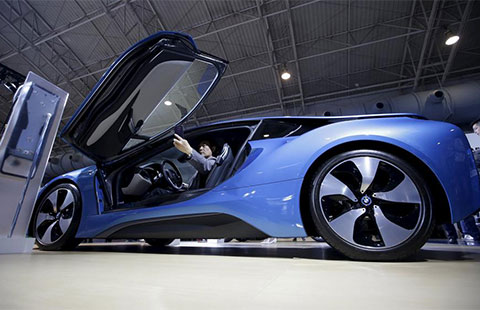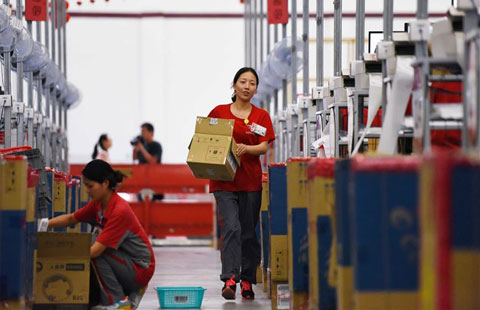Zhejiang businessmen sharing development dream overseas
(Xinhua) Updated: 2016-06-17 10:21HANGZHOU - "If you hear Zhejiang or Wenzhou dialect in Milan, Italy, you should not be surprised," said Zhejiang businessman Lou Dengxin.
Over half of the population of Lou's hometown in Wenzhou, east China's Zhejiang Province have had started businesses overseas.
What began as a way of making a living far from their poor mountainous home, former Wenzhou residents have gradually built a reputation for diligence and integrity. The entrepreneurs have become fully-fledged members of their local communities and an economic force to be reckoned with.
Mix with locals
Zhou Xiaoyan is one of the most successful of Zhejiang's entrepreneurs in Italy. She moved there in 1990 and now owns the Milanhuaxia Group, a communications conglomerate whose diverse business interests include housing, tourism and design.
Chinese companies in Italy have traditionally been associated with restaurants, bars and hotels, but Zhou's business has moved out of this comfort zone.
Milanhuaxia Group's media center hosted several events during the 2015 Milan World Expo, including an exhibition on Chinese charities and a celebration of traditional ink painting. Zhou has also hosted activities such as China-Europe fashion month.
Not merely doing business, Chinese entrepreneurs play their parts in local social welfare through charity work, said Zhou, and the Italian government has an open and welcoming attitude towards Chinese capital.
Win-win
Wang Benshan is chair of the board of Zhejiang Rifa Precision Machinery. Half of the Zhejiang private listed company's operation has been in Italy since the purchase of two Italian digital machinery companies in 2014 to 2015.
The acquisition gave a big boost to Rifa's research and development capacity while Rifa's well-established sales network in China has helped the two Italian companies.
For the Italians, Zhejiang's businesses are seen as a positive force for creating jobs, and they pay their taxes.
Building up the brand
According to Zhejiang Academy of Social Sciences, there are over 2 million people from Zhejiang living in over 180 countries, most of whom run businesses there. Their assets are estimated at over $700 billion.
In Italy for example, most of the 321,000 Chinese living there are from Zhejiang, and one in five owns a business.
Chen Zhengxi, chair of Italy Fansheng Import and Export, said that over the past 30 years, Zhejiang business people in Europe have started from nothing and have made their success mostly from importing Chinese products. Now as the economy slows in Europe, they are seeking ways to transform.
The success of Zhejiang's businesses lies in honesty and hard work, according to Qiu Yuanping, director of the Overseas Chinese Affairs Office of the State Council.
The space for China-Europe business cooperation remains huge, with China's vast consumer market and Europe's brands.
- All you need is bullish ambition
- Best Employers China 2016 winners demonstrate growth rates
- Stora Enso's $2.9b board and pulp mill operational in China
- Midea bids for control of German robot-maker Kuka with $5.16b
- More wealthy Chinese head overseas to see doctor
- COSCO Shipping Bulk sets sail
- Tencent may acquire stake in game developer Supercell
- Alibaba says it does fight fake products really


















